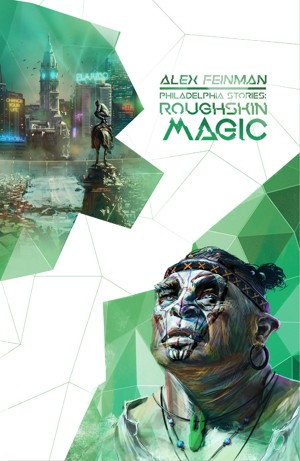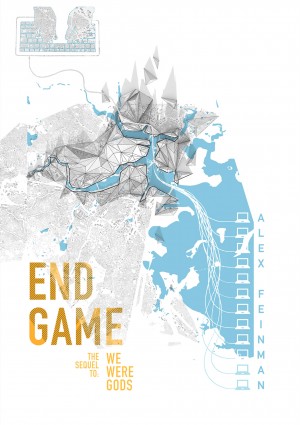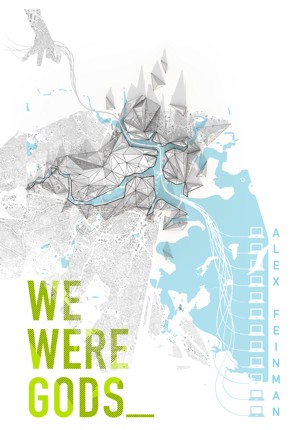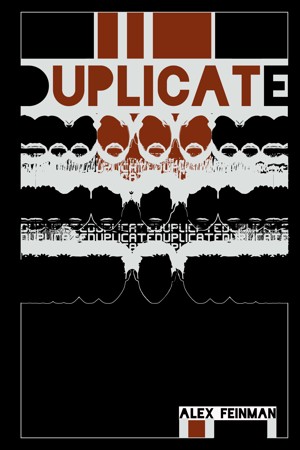Connect with the Author
Share with Friends
Interview with Alex Feinman
Published 2015-01-05.
Smashwords Interviews are created by the profiled author or publisher.
Books by This Author
Philadelphia Stories: Roughskin Magic
by Alex Feinman
Price:
$8.95 USD.
Words: 83,830.
Language:
English.
Published: October 28, 2022
.
Categories:
Fiction » Science fiction » Cyberpunk, Fiction » Romance » Sci-fi
Roughskin Magic, from the author of Duplicate and We Were Gods, is an action-packed romance set in a near future torn by late-stage capitalism, climate crisis, and the catastrophic return of magic.
End Game
by Alex Feinman
Series: We Were Gods, Book 2.
Price:
$8.95 USD.
Words: 94,130.
Language:
English.
Published: October 2, 2014
.
Categories:
Fiction » Science fiction » Cyberpunk, Fiction » Thriller & suspense » Action & suspense
Luke and Toni return in volume II of "We Were Gods". After thwarting Luke's old boss, Rob, the pair are left to recover from the violence visited upon them. But with Rob still controlling implanted players, Luke and Toni must strike back. They have an uphill battle, however, as government agencies get involved on both sides.
We Were Gods
by Alex Feinman
Series: We Were Gods, Book 1.
Price:
$8.95 USD.
Words: 79,250.
Language:
American English.
Published: January 9, 2014
.
Categories:
Fiction » Science fiction » Cyberpunk
(5.00 from 2 reviews)
Don Lucas Ferez, captain of the Border Guard, is tasked with keeping the ancient evils out of the peaceful South. When the old gods reappear he is first to sound the alarm. But in the real world, Luke Green is at his wit's end: the creators of his world-spanning Game are back again and up to no good. Luke must confront this collision between in-Game politics and real-world criminal activity.
Duplicate
by Alex Feinman
Price:
$4.95 USD.
Words: 30,160.
Language:
English.
Published: May 21, 2011
.
Categories:
Fiction » Science fiction » Adventure
(4.00 from 4 reviews)
What do you do when your ship is about to hit an asteroid?
Why, you jump in your Corp-provided Duplipod, of course. It's foolproof. It records your brain patterns, then kills you. The Duplipod will grow you a new body when it's safe; you will awake refreshed and renewed.
Sometimes, it doesn't work quite right.
Duplicate: would you die to save your own life?




